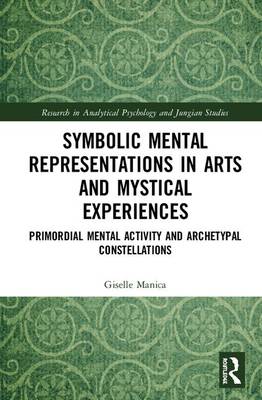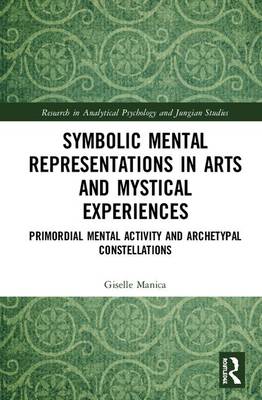
- Retrait gratuit dans votre magasin Club
- 7.000.000 titres dans notre catalogue
- Payer en toute sécurité
- Toujours un magasin près de chez vous
- Retrait gratuit dans votre magasin Club
- 7.000.0000 titres dans notre catalogue
- Payer en toute sécurité
- Toujours un magasin près de chez vous
Symbolic Mental Representations in Arts and Mystical Experiences
Primordial Mental Activity and Archetypal Constellations
Giselle ManicaDescription
Symbolic Mental Representations in Arts and Mystical Experiences explains how the individual's conceptualization of reality is dependent on the development of their brain, body structure, and the experiences that are physiologically confronted, acted, or observed via learning and/or simulation, occurring in family or community settings.
The book offers support for Jean Knox's reinterpretation of Jung's archetypal hypothesis, exposing the fundamentality of the body - in its neurophysiological development, bodily-felt sensations, non-verbal interactions, affects, emotions, and actions - in the process of meaning-making. Using information from disciplines such as Affective Neuroscience, Embodied Cognition, Attachment Theory, and Cognitive Linguistics, it clarifies how the most refined experiences of symbolic imagination are rooted in somatopsychic patterns.
This book will be of great interest for academics and researchers in the fields of Analytical Psychology, Affective Neuroscience, Linguistics, Anthropology of Consciousness, Art-therapy, and Mystical Experiences, as well as Jungian and post-Jungian scholars, philosophers, and teachers.
Spécifications
Parties prenantes
- Auteur(s) :
- Editeur:
Contenu
- Nombre de pages :
- 14
- Langue:
- Anglais
- Collection :
Caractéristiques
- EAN:
- 9780367442736
- Date de parution :
- 08-07-20
- Format:
- Livre relié
- Format numérique:
- Genaaid
- Dimensions :
- 156 mm x 234 mm
- Poids :
- 530 g

Les avis
Nous publions uniquement les avis qui respectent les conditions requises. Consultez nos conditions pour les avis.






